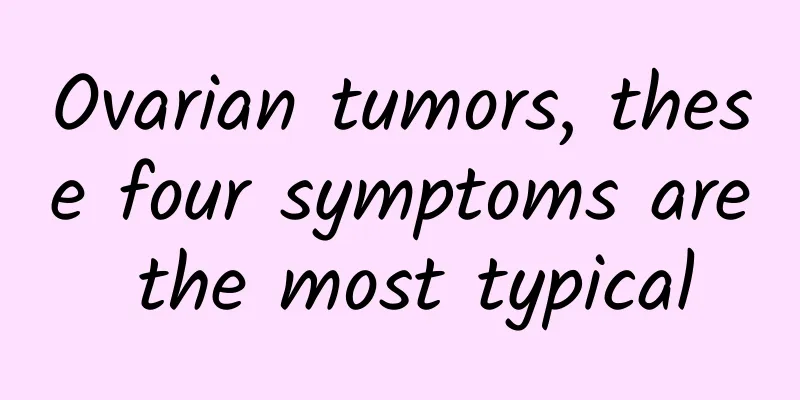Can brain stem thrombosis be cured?

|
Brainstem thrombosis is also a relatively common form of thrombosis. It refers to the occurrence of thrombosis in the brainstem. It is very harmful to the patient. It will affect the oxygen supply to the brain, affect the microcirculation, and easily cause cerebral infarction in the patient. When this type of thrombosis occurs, it must be treated in time. If edema occurs, it must be reduced in time to reduce intracranial pressure. In severe cases, it can be treated through interventional therapy. Can brain stem thrombosis be cured? (1) General treatment Pay attention to rest, pay attention to the balance of water and electrolytes, and the diet should be mainly low-fat, low-calorie, low-salt diet, with sufficient high-quality protein, vitamins, fiber and trace elements. Overeating is not good for your health. Pay attention to eliminating the patient's tension. It is best to let the patient understand the condition so that he or she can cooperate with the treatment. Pay attention to rest, pay attention to the balance of water and electrolytes, and eat a low-fat, low-calorie, low-salt diet (2) Treatment of cerebral edemaIf there is cerebral edema, mannitol should be used rationally to dehydrate and reduce intracranial pressure. Mannitol not only has the effect of reducing intracranial pressure, but also has a strong free radical scavenging effect. Depending on the condition of the patient, 125-250 ml of 20% mannitol can be used for rapid intravenous injection. Or 250-500 ml of 10% glycerol fructose can be slowly injected intravenously. Diuretic dehydrating agents such as furosemide (Lasix) and ethacrynic acid (sodium urate) can also be intermittently injected intramuscularly or intravenously, or dexamethasone can be used to treat cerebral edema. 2. Interventional treatment of cerebrovascular disease For patients with carotid or intracranial artery stenosis, treatment can be performed through a catheter under television guidance with the help of a high-definition, high-resolution digital reduction angiography machine. 3. Regulation of blood pressure in the acute phase Asymptomatic cerebral infarction is often accompanied by a history of hypertension. Pay attention to blood pressure regulation. If the blood pressure is below 24/12.66 kPa (180/95 mmHg), no intervention is needed. If it exceeds this range, antihypertensive drugs are required, and it is best to implement it under close blood pressure monitoring. (1) Blood pressure should be lowered slowly Since this condition is more common in elderly patients, their cerebrovascular autoregulation function is poor and they have difficulty adapting to sudden changes in blood pressure, their blood pressure needs to be slowly lowered to a reasonable level. Studies have shown that a rapid and drastic drop in blood pressure will inevitably result in cerebral ischemia. It is advisable to reduce the average blood pressure by 10% to 20% in the first 24 hours. (2) Blood pressure reduction should be individualized Select medication based on the patient's usual blood pressure level and original drug response. Generally, the patient's blood pressure can be gradually regulated to normal. Select medication based on the patient's usual blood pressure level and original drug response. Generally, the patient's blood pressure can be gradually regulated to normal (3) to maintain a stable antihypertensive effect Keep blood pressure stable within 24 hours and try to avoid blood pressure fluctuations. (4) Pay attention to the protection of target organs In antihypertensive treatment, protective treatment of target organs is particularly important, with a focus on organs such as the heart, brain, and kidneys. Their function directly affects the patient's prognosis. |
<<: What foods can dissolve blood clots?
>>: Causes of arteriovenous fistula thrombosis
Recommend
Abdominal pain and no menstruation
Menstruation is always a very important issue for...
Can a severed nerve be repaired?
Neurotomy is a relatively serious disease. Genera...
7 symptoms to check if you have a lot of toxins accumulated in your body
Poisoning symptom 1: Bad breath Bad breath refers...
Conjunctivitis diet
The causative factors of conjunctivitis are mainl...
Can fatigue cause miscarriage?
Women need to pay attention to many issues during...
What are the benefits of moxibustion on the soles of the feet?
When it comes to moxibustion, I believe many frie...
How to treat inguinal hernia effectively
Inguinal hernia is a type of hernia that occurs m...
What causes blood fainting?
What causes blood fainting? Halo disorder is actu...
Pimples inside the ears
For people who are prone to acne, acne is everywh...
Occasional pins-and-needles pain in the eyes
Many people often feel a pricking sensation in th...
Dosage of Gorgon Fruit
As we all know, Gorgon fruit is the lotus pod, wh...
Causes of acne due to excessive secretion of male hormones
Acne is a painful thing for girls who love beauty...
My little toe hurts when I wear shoes
The little toe is often squeezed and painful when...
What should I do if my blood sugar level rises after taking insulin?
If blood sugar rises after insulin injection, it ...
What is the best way to treat pelvic effusion? Chinese medicine teaches you diet therapy
Pelvic effusion is one of the common pelvic disea...









